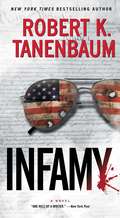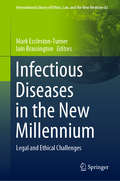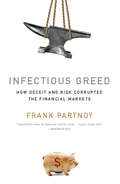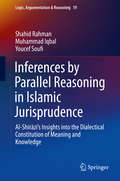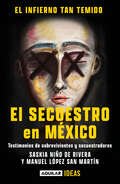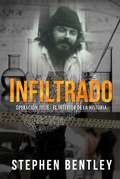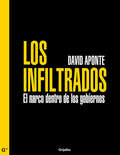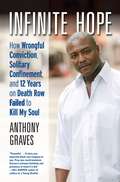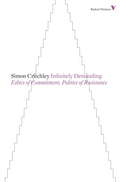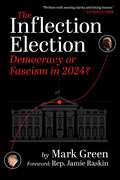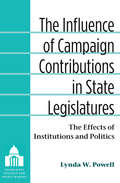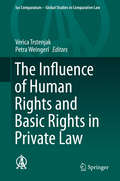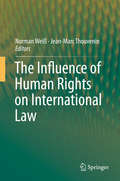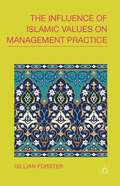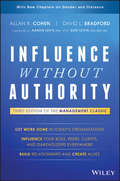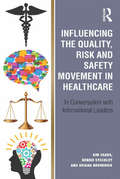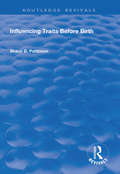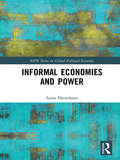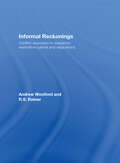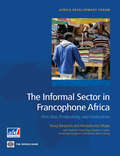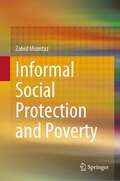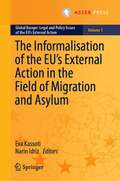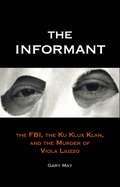- Table View
- List View
Infamy (A Butch Karp-Marlene Ciampi Thriller #28)
by Robert K. TanenbaumThe "rock-solid" (Kirkus Reviews) prosecutor Butch Karp and his wife, Marlene Ciampi, return to solve the suspicious murder of a US Army colonel and battle corruption at the highest levels of the United States government in this novel by New York Times bestselling author Robert K. Tanenbaum.Intrigue, murder, corruption, and dramatic courtroom battles combine to make Infamy another must-read in Robert K. Tanenbaum's "tightly-written" (Booklist) legal thrillers. When a former Army veteran suddenly murders a colonel in New York, he claims that he had to do it because he was being used in mind control experiments. Surprisingly, a top Wall Street criminal defense lawyer, one with ties to the White House, decides to defend the killer, arguing that his client suffered from post-traumatic stress from his tours in Afghanistan and that it's his patriotic duty to assist him. As New York District Attorney Roger "Butch" Karp prepares a murder case against the veteran, he meets with investigative reporter Ariadne Stupenagel, who suspects that one of her sources for a story on high-level government corruption was a victim in the shooting. This points not to a random act of violence, but a hired killing that goes to the top levels of our nation. In this fast-paced thriller, Karp goes up against corruption so powerful that he, his family, and his friends are in danger if he intends to prosecute those responsible for the murder of an FBI whistle-blower. Filled with edge-of-your-seat action, stunning plot twists, and, "solid courtroom scenes" (Kirkus Reviews), Infamy will keep you guessing until the very end.
Infectious Diseases in the New Millennium: Legal and Ethical Challenges (International Library of Ethics, Law, and the New Medicine #82)
by Mark Eccleston-Turner Iain BrassingtonThis book examines the often tough questions raised by infectious diseases through essays that explore a host of legal and ethical issues. The authors also offer potential solutions in order to ensure that past errors are not repeated in response to future outbreaks. The essays touch on a number of key themes, including institutional competence, the accountability and responsibility of non-state actors, the importance of pharmaceuticals, and the move towards a rights-based approach in global health.Readers gain insights into such important questions as follows: How can we help victims in other countries? What (if any) responsibility should be placed upon international organizations whose actions exacerbate infectious diseases? How can we ensure that pharmaceutical research helps all communities, even those who cannot afford to pay for the products? While broadly covering global health law, the book adopts an inter-disciplinary approach that draws on public international law, philosophy, international relations, human rights law, and healthcare economics. As such, it is a valuable resource for academic libraries, appealing to scholars and postgraduates engaged in relevant research, as well as to those engaged with global health and policy at the international level.
Infectious Greed: How Deceit and Risk Corrupted the Financial Markets
by Frank PartnoyAs the global financial crisis unfolds people everywhere are seeking to understand how markets devolved to this perilous, volatile state. In this dazzling and meticulously researched work of financial history, first published in 2003, and now thoroughly revised and updated, law professor and financial expert Frank Partnoy tells the story of how "classical" Wall Street securities like stocks and bonds were quietly eclipsed by ever more "quantum" products like derivatives. He documents how, starting in the mid-1980s, each new level of financial risk and complexity obscured the sickness of corporate America, and how Wall Street's evlving paradigm moved farther and farther beyond the understanding-and regulation-of ordinary investors and government overseers, leading inevitably to disaster.
Inferences by Parallel Reasoning in Islamic Jurisprudence: Al-Shīrāzī’s Insights into the Dialectical Constitution of Meaning and Knowledge (Logic, Argumentation & Reasoning #19)
by Shahid Rahman Muhammad Iqbal Youcef SoufiThis monograph proposes a new (dialogical) way of studying the different forms of correlational inference, known in the Islamic jurisprudence as qiyās. According to the authors’ view, qiyās represents an innovative and sophisticated form of dialectical reasoning that not only provides new epistemological insights into legal argumentation in general (including legal reasoning in Common and Civil Law) but also furnishes a fine-grained pattern for parallel reasoning which can be deployed in a wide range of problem-solving contexts and does not seem to reduce to the standard forms of analogical reasoning studied in contemporary philosophy of science and argumentation theory. After an overview of the emergence of qiyās and of the work of al-Shīrāzī penned by Soufi Youcef, the authors discuss al-Shīrāzī’s classification of correlational inferences of the occasioning factor (qiyās al-'illa). The second part of the volume deliberates on the system of correlational inferences by indication and resemblance (qiyās al-dalāla, qiyās al-shabah). The third part develops the main theoretical background of the authors’ work, namely, the dialogical approach to Martin-Löf's Constructive Type Theory. The authors present this in a general form and independently of adaptations deployed in parts I and II. Part III also includes an appendix on the relevant notions of Constructive Type Theory, which has been extracted from an overview written by Ansten Klev. The book concludes with some brief remarks on contemporary approaches to analogy in Common and Civil Law and also to parallel reasoning in general.
The Infidel and the Professor: David Hume, Adam Smith, and the Friendship That Shaped Modern Thought
by Dennis C. RasmussenThe story of the greatest of all philosophical friendships—and how it influenced modern thoughtDavid Hume is widely regarded as the most important philosopher ever to write in English, but during his lifetime he was attacked as “the Great Infidel” for his skeptical religious views and deemed unfit to teach the young. In contrast, Adam Smith was a revered professor of moral philosophy, and is now often hailed as the founding father of capitalism. Remarkably, the two were best friends for most of their adult lives, sharing what Dennis Rasmussen calls the greatest of all philosophical friendships. The Infidel and the Professor is the first book to tell the fascinating story of the friendship of these towering Enlightenment thinkers—and how it influenced their world-changing ideas.The book follows Hume and Smith’s relationship from their first meeting in 1749 until Hume’s death in 1776. It describes how they commented on each other’s writings, supported each other’s careers and literary ambitions, and advised each other on personal matters, most notably after Hume’s quarrel with Jean-Jacques Rousseau. Members of a vibrant intellectual scene in Enlightenment Scotland, Hume and Smith made many of the same friends (and enemies), joined the same clubs, and were interested in many of the same subjects well beyond philosophy and economics—from psychology and history to politics and Britain’s conflict with the American colonies. The book reveals that Smith’s private religious views were considerably closer to Hume’s public ones than is usually believed. It also shows that Hume contributed more to economics—and Smith contributed more to philosophy—than is generally recognized.Vividly written, The Infidel and the Professor is a compelling account of a great friendship that had great consequences for modern thought.
El infierno tan temido: El secuestro en México
by Saskia Niño de Rivera Manuel López San MartínTestimonios de sobrevivientes y secuestradores. El secuestro en México es un delito que ha revolucionado y crecido de forma voraz: lo mismo destroza la vida de personas millonarias que de hombres y mujeres con escasos recursos. El libro ofrece una contraparte no menos amarga con la voz de las víctimas para develar cómo fue su día a día durante el secuestro, qué secuelas físicas y mentales quedaron en su vida, cómo fue la relación con sus captores y cómo reaccionaron ante las torturas y violaciones, entre muchas otras confesiones estremecedoras. El infierno tan temido: El secuestro en México es un documento único que devela la entraña del delito, no para juzgar desde lo inmediato, sino para reflexionar sobre qué podemos hacer para decir basta a la violencia que destroza a México.
Infiltrado: Operación Julie - el interior de la historia
by Stephen BentleyContado de forma magistral por el oficial disfrazado Stephen Bentley, éste ya no es un libro sensacionalista sobre un crimen verdadero. Sumérjase más allá de las partes visibles del agua y llegue a las profundidades sombrías, a medida que usted será conducido no sólo por la operación, sino por las consecuencias, tanto personales como públicas. Una lectura obligatoria para los verdaderos amantes del crimen e historiadores. No soy capaz de recomendar este libro lo suficiente. Fue una lectura muy agradable. - Resumen La Operación Julie sigue siendo hoy el punto de referencia para todas las operaciones de agentes infiltrados británicos y en los más diversos entrenamientos. En 2011, la BBC afirmó que esa operación policial sólida y única fue el inicio de la guerra contra las drogas. Stephen Bentley fue uno de los cuatro detectives infiltrados involucrados en la Operación Julie, una de las mayores aprehensiones de drogas del mundo. Junto con su socio disfrazado, tuvieron acceso a una banda que producía cerca del 90% del LSD del mundo y descubrió un plan para importar enormes cantidades de cocaína boliviana al Reino Unido. El submundo conoció al autor como Steve Jackson. ¿Cómo logró infiltrarse en las dos pandillas? ¿Cómo convertirse en un usuario de drogas y "vivir una mentira" le afectó? Descubre las respuestas entrando en la mente de Steve Jackson, detective disfrazado. "La perspectiva de un insider sobre el tráfico de drogas, contada con encanto, inteligencia y, a veces, humor, por un hombre talentoso, calificado de forma única para contar la verdadera historia." - Resumen de la Crítica "Este no es un drama criminal de televisión donde los chicos y los bandidos son fácilmente identificables y donde el crimen se resuelve durante una hora en que el programa está en el aire. En la historia de la vida real de la Operación Julie, las líneas definidoras no son tan claras y me quedé bastante intrigado
Los infiltrados
by David AponteHace poco más de dos años la dea detectó una filtración en la embajadade Estados Unidos en México por parte de operadores del cártel deSinaloa. Desde entonces, se ha descubierto la intricada trama deespionaje y complicidades existente entre militares, policías y elcrimen organizado, que va desde lo más simple como comprar ladesaparición de un expediente, hasta lo más absurdo: delincuentesofreciendo apoyo tecnológico para que las fuerzas de seguridadinvestiguen y terminen con la actividad de sus competidores; una guerrade criminales dentro de la batalla institucional contra los capos delnarco.Sin embargo, en este libro del periodista David Aponte lo que menosimporta son las suspicacias o ideas de conspiración que puedan despertaren el lector; los retratos de Los infiltrados les devuelve a estostestigos protegidos su condición de seres de carne y hueso, mostrando elenjambre de codicia que los envuelve desde que cruzan de bando, hasta laendeble estructura que busca juzgarlos, que debe protegerlos y queotorga privilegios, inmunidad y dinero de las arcas oficiales.Este libro recoge los testimonios de algunos de estos personajes quefueron detenidos en la Operación Limpieza, un proceso en el cual sedescubrió la red de venta de información y compra de favores por partede militares y policías entre los que están procesados penalmenteincluso miembros de la casta más alta (como el ex subprocurador de laPGR, Noé Ramírez Mandujano, y el ex director técnico de la SIEDO, MiguelColorado González). Aponte nos revela lo que puede ser el mayor hueco enel combate al crimen organizado: el poder de corrupción del narco, ladebilidad de las estructuras de los organismos de seguridad y lafragilidad de sus sistemas de control, que a la larga han provocadooperativos fallidos y una guerra que cada día parece más perdida.
Infinite Hope: How Wrongful Conviction, Solitary Confinement, and 12 Years on Death Row Failedto Kill My Soul
by Anthony GravesWritten by a wrongfully convicted man who spent 16 years in solitary confinement and 12 years on death row, a powerful memoir about fighting for--and winning--exoneration.In the summer of 1992, a grandmother, a teenage girl, and four children under the age of ten were beaten and stabbed to death in Somerville, Texas. The perpetrator set the house on fire to cover his tracks, deepening the heinousness of the crime and rocking the tiny community to its core. Authorities were eager to make an arrest. Five days later, Anthony Graves was in custody.Graves, then twenty-six years old and without an attorney, was certain that his innocence was obvious. He did not know the victims, he had no knowledge about the crime, and he had an airtight alibi with witnesses. There was also no physical evidence linking him to the scene. Yet Graves was indicted, convicted of capital murder, sentenced to death, and, over the course of twelve years on death row, given two execution dates. He was not freed for eighteen years, two months, four days.Through years of suffering the whims of rogue prosecutors, vote-hungry district attorneys, and Texas State Rangers who played by their own rules, Graves was frequently exposed to the dire realities of being poor and black in the criminal justice system. He witnessed fellow inmates who became his friends and confidants be taken away, one by one, to their deaths. And he missed out on seeing his three young sons mature into men. Graves's only solace was his infinite hope that the state would not execute him for a crime he did not commit. To maintain his dignity and sanity, Graves made sure as many people as possible knew about his case. He wrote letters to whomever he thought would listen. Pen pals in countries all over the world became allies, and he attracted the attention of a savvy legal team that overcame setback after setback, chiseling away at the state's faulty case against him. Everyone's efforts eventually worked. After Graves's exoneration, the original prosecutor on his case was disbarred.Graves is one of a growing number of innocent people exonerated from death row. The moving account of his saga--of his ultimate fight for freedom from inside a prison cell--is as haunting as it is poignant, and as shameful to the legal system as it is inspiring to those on the losing end of it.
Infinitely Demanding
by Simon CritchleyThe clearest, boldest and most systematic statement of Simon Critchley's influential views on philosophy, ethics, and politics, Infinitely Demanding identifies a massive political disappointment at the heart of liberal democracy. Arguing that what is called for is an ethics of commitment that can inform a radical politics, Critchley considers the possibility of political subjectivity and action after Marx and Marxism, taking in the work of Kant, Levinas, Badiou and Lacan. Infinitely Demanding culminates in an argument for anarchism as an ethical practice and a remotivating means of political organization.From the Trade Paperback edition.
The Inflection Election: Democracy or Fascism in 2024?
by Mark GreenRep. JAMIE RASKIN (D-MD): &“This fine book is an essential primer about the stakes in &’24. We owe Mark a debt of gratitude.&”LAURENCE TRIBE: &“Written with searing clarity and biting humor.&” The Inflection Election: Democracy or Fascism in 2024? aims to warn busy and credulous Americans that this November will be a choice between a Party of Progress and a Party of Dangerous Extremism that may determine the path for American governance for generations. This is not a &“both-sides&” analysis by a journalistic spectator, but is instead a blunt &“one-sided&” guide by an experienced partisan—a public interest lawyer, elected Democrat, and prolific author. Mark Green makes the case for Democracy and Freedom and against Trump&’s blatant Caesarism and MAGA&’s fringeworthy agenda. While neither side has a prohibitive advantage as of mid-2024, the stakes are no mystery. If the GOP should now win both the White House and Congress—with a reactionary Supreme Court already in its column—a numerical minority of Americans would then enjoy a temporary governing majority that could cancel a century of progress and make the world&’s oldest democracy no longer democratic. There must be a word that binds together such threats but it sure isn't &“conservative&” in the way Eisenhower, Reagan, or the Bushes would have understood it. For if all the corruption, lies, violence, and racism described throughout The Inflection Election were aggregated into a pointillist painting, the portrait would resemble Orbán far more than Obama. This is extremism posing as patriotism . . . whether it&’s called fascism, dictatorship, autocracy, or authoritarianism. While the country can hope that the courts will hold Trump accountable, Green concludes that crushing it in 2024 is the best way to return to a healthy two-party system where losers respect the choice of voters, like in the good old days of 1789–2020. In a likely close 2024 national contest, The Inflection Election is an entertaining and informative manifesto that will become part of this year&’s urgent political conversation. It is a one-stop primer that synthesizes fresh phrases, narratives and values to keep Democrats on offense and Trump&’s MAGA party on-the-ropes. Green&’s conclusion is that the GOP &“sounds like a casting call for the delirious jury in the classic film Idiocracy, which was supposed to be a satire on reverse Darwinism, not reality TV.&” November 5, 2024 is either/or time. This book explains why.
The Influence of Campaign Contributions in State Legislatures: The Effects of Institutions and Politics
by Lynda W. PowellCampaign contributions are widely viewed as a corrupting influence but most scholarly research concludes that they have marginal impact on legislative behavior. Lynda W. Powell shows that contributions have considerable influence in some state legislatures but very little in others. Using a national survey of legislators, she develops an innovative measure of influence and delineates the factors that explain this great variation across the 99 U. S. state legislative chambers. Powell identifies the personal, institutional, and political factors that determine how much time a legislator devotes to personal fundraising and fundraising for the caucus. She shows that the extent of donors' legislative influence varies in ways corresponding to the same variations in the factors that determine fundraising time. She also confirms a link between fundraising and lobbying with evidence supporting the theory that contributors gain access to legislators based on donations, Powell's findings have important implications for the debate over the role of money in the legislative process.
The Influence of Human Rights and Basic Rights in Private Law
by Petra Weingerl Verica TrstenjakThis book provides a comparative perspective on one of the most intriguing developments in law: the influence of basic rights and human rights in private law. It analyzes the application of basic rights and human rights, which are traditionally understood as public law rights, in private law, and discusses the related spillover effects and changing perspectives in legal doctrine and practice. It provides examples where basic rights and human rights influence judicial reasoning and lead to changes of legislation in contract law, tort law, property law, family law, and copyright law. Providing both context and background analysis for any critical examination of the horizontal effect of fundamental rights in private law, the book contributes to the current debate on an important issue that deserves the attention of legal practitioners, scholars, judges and others involved in the developments in a variety of the world's jurisdictions. This book is based on the General Report and national reports commissioned by the International Academy of Comparative Law and written for the XIXth International Congress of Comparative Law in Vienna, Austria, in the summer of 2014.
The Influence of Human Rights on International Law
by Norman Weiß Jean-Marc ThouveninThis volume discusses the impact of human rights law on other fields of international law. Does international human rights law modify other fields of international law? Contributions focus on possible spillover effects of human rights on international economic or international criminal law. Does international human rights law have a streamlining effect on international law as a whole? This might be identified as a process of constitutionalisation. In this book, human rights can be understood as one of the core principles of international legal order and thus have an effect on the general law of treaties or on the settlement of disputes. Although human rights law is a relatively young field of international law, its content and core values today are of major importance for the interpretation of international law as a whole. As we witness a redefinition of sovereignty as a responsibility of states towards the people and a shift to greater relevance of the individual in international law in general, it is a logical consequence that human rights have an impact on other areas of international law.
The Influence of Islamic Values on Management Practice
by Gillian ForsterThe Influence of Islamic Values on Management Practice is a cultural study examining how Islamic values influence management practice. Using Morocco as a case study, and with academic research and actual business managers working in this context, the book explores and explains how national characteristics, including Islam, shape management practice
Influence Without Authority
by Allan R. Cohen David L. BradfordGet what you need to achieve your objectives and produce results Influence Without Authority is the classic guide to getting what you need from people you don't control. Getting things done requires collaboration, and convincing others to contribute requires political skill; this book introduces the Exchange Model, in which you get what you need by offering something of value in return. The key lies in knowing what the other person values—that's their "currency," and it's your immediate tool for coaxing their cooperation. This model has been proven over decades, as organizations around the world have turned away from frustration and resignation toward collaboration and results. This book shows you how to implement the Exchange Model at the personal, team, and organizational level to raise the bar for performance and leadership. This new third edition has been updated reflect the changing face of the workplace, and includes new examples and information on geographically dispersed virtual teams. Supplementary materials facilitate classroom and training use with discussions, role-play, videos, and other ancillaries that deepen understanding and promote practical application. Get what you need from the people who have it through mutual exchange Think in terms of interest, and pinpoint the "currencies" other people trade in Apply the Exchange Model across entire organizations to lead major change Learn practical real-world strategies for influencing those you do not control The ability to influence those not under your authority is becoming ever more valuable. Organizations are flattening, and outside contractors are taking on larger roles than ever before—getting results now means lateral cooperation, often across borders, time zones, organizations, and more. Influence Without Authority provides a proven model for success in this new environment, with expert guidance for real-world application.
Influencing the Quality, Risk and Safety Movement in Healthcare: In Conversation with International Leaders
by Kim Sears Denise StockleyInfluencing the Quality, Risk and Safety Movement in Healthcare explores the inner workings of some of the most influential minds in healthcare quality, risk and safety. The book was created in cooperation with the Master of Science in Healthcare Quality graduate program, developed and delivered by Queen’s University, Canada. This is the only standalone interdisciplinary Master of Science graduate degree in Healthcare Quality in North America that focuses on creating tomorrow’s healthcare leaders. Following a one-to-one collaboration between each leader in healthcare with a dedicated learner of the MSc(HQ), readers are presented with a synopsis of the leader’s work followed by an in-depth interview with him or her. Interviews center around the leaders’ contributions to and thoughts on quality, risk and safety in healthcare, dealing with topics such as the development of their body of work, their greatest achievements, what they wish they could change, and future direction of quality, risk and safety, etc. The book provides a unique and highly accessible view into how and why the science of healthcare quality has developed, as well as giving a first-hand account of the founders and key players in the movement. It will offer valuable insights to any undergraduate/graduate class with an interest in healthcare, as well as professionals working within any of the many disciplines that can influence the healthcare system.
Influencing Traits Before Birth (Routledge Revivals)
by Shaun D. PattinsonThis title was first published in 2002.In this informative and captivating book the author presents a moral critique of the laws governing the creation of designer babies. Alan Gewirth’s Principle of Generic Consistency is used as the starting point for developing a framework, which is then used to critique the legal position in the EU countries (with particular reference to the UK), Canada and the USA. The conclusion the author reaches is that a proper moral response to the issues covered must take account of specified prima facie presumptions, to be applied by legitimately appointed regulatory bodies. The text assesses the adequacy of existing regulatory responses by reference to these presumptions. Also containing detailed appendices summarizing the legal position with regard to abortion and prenatal diagnosis, preimplantation genetic diagnosis, in vitro embryo research, cloning, and germ-line gene therapy in the countries mentioned above, this volume is an indispensable resource for both students and scholars with a keen interest in this highly contested field.
Informal Economies and Power: Rethinking Informality, Resilience And Violence In Kosovo (RIPE Series in Global Political Economy)
by Anna DanielssonThe global ubiquity of informal economic activities has turned informality into a key policy question, not least in international peace- and state-building. This book explores a core aspect of economic informality: its resilience despite comprehensive international anti-informality operations. Using Kosovo as an illustrative case, Danielsson suggests that to understand the resilience of informality, two distinct areas of practice need to be studied in conjunction rather than separately. The first concerns the professional practices enacted by international organisations in their attempts to formalise the informal economy in Kosovo. The second area of practice concerns the everyday informal economic practices of social agents in Kosovo. To study these areas of practice at their junction, Danielsson uses Pierre Bourdieu’s concept of symbolic power and argues that in post-conflict Kosovo, the distinct practices have become interwoven and co-constitutive of a novel ordering and meaning of informality. The resilience of the informal thus plays out through – while undermining and reinforcing the need of – the international anti-informality operations. Including scholarship from global governance, global political economy and social theory, this book’s original perspective on informal economies and power will appeal to scholars and professionals located in peace studies, development studies, and the field of international relations.
Informal Funds Transfer Systems
by Mohammed El Qorchi Samuel Munzele Maimbo John F. WilsonA report from the International Monetary Fund.
Informal Reckonings: Conflict Resolution in Mediation, Restorative Justice, and Reparations
by Andrew Woolford R.S. RatnerThe 'reparational turn' in the field of law has resulted in the increased use of so-called 'informal' approaches to conflict resolution, including primarily the three mechanisms considered in this book: mediation, restorative justice and reparations. While proponents of these mechanisms have acclaimed their communicative and democratic promise, critics have charged that mediation, restorative justice and reparations all potentially serve as means for encouraging citizens to internalize and mimic the rationalities of governance. Indeed, the critics suggest that informal justice's supposed oppositional relationship to formal justice is, at base, a mutually reinforcing one, in which each system relies on the other for its effective operation, rather than the two being locked in a struggle for dominance. This book contributes to the discussion of the confluence of informal and formal justice by providing a clearer picture of the justice 'field' through the notion of the 'informal/formal justice complex.' This term, adapted from Garland and Sparks (2000), describes a cultural formation in which adversarial/punitive and conciliatory/restorative justice forms coexist in relative harmony despite their apparent contradictions. Situating this complex within the context of neoliberalism, this book identifies the points of rupture in the informal/formal justice complex to pinpoint how and where a truly alternative and 'transformative' justice (i.e. a justice that challenges and counters the hegemony of formal legal practices, opening the field of law to a broader array of actors and ideas) might be established through the tools of mediation, restorative justice and reparations.
The Informal Sector in Francophone Africa
by Ahmadou Aly Mbaye Birahim Bouna Niang Stephen S. Golub Dominique Haughton Ibrahima Thione Diop Nancy BenjaminThe informal sector in West Africa has some distinctive characteristics. Informality usually connotes small and unorganized producers operating on the fringes of the formal economy. In West African countries, however, the normal situation is to some extent reversed: a dynamic informal sector dominates the stagnant formal economy. Moreover, in these countries, small operators coexist with very large and politically well-connected informal enterprises and well-organized networks. Notwithstanding its importance, there have been relatively few systematic studies of this dual feature of the informal sector in West Africa, and consequently too little is known about it. One of our hypotheses is that determinants and appropriate policy responses are likely to differ between "large" and "small" informal operations. This volume focuses on the urban informal sector in three capital cities: Dakar (Senegal), Cotonou (Benin) and Ouagadougou (Burkina Faso). These three countries have important differences and as a group, are quite representative of francophone West Africa and to a lesser extent West Africa as a whole. The authors use a mix of quantitative and qualitative approaches with data obtained from our new Bank surveys of 900 firms in the three cities, interviews with knowledgeable stakeholders and participants, and all available secondary data. For the surveys, the authors designed their sampling strategy to include three distinctive categories of firms: formal, small informal, and large informal. In addition, they developed a comprehensive definition of informality to reflect its complexity and heterogeneneity. The definition (Chapter 1) covers six components of informality, whereas previous definitions are generally limited to a binary classification based on one or two indicators. The results for West Africa corroborate many findings from earlier studies, particularly for small informal firms. In addition, the authors break new ground by shedding light on the large informal sector and the influence of institutional and socio-cultural factors in shaping the informal sector.
Informal Social Protection and Poverty
by Zahid MumtazThis book analyzes the importance of informal social protection provided by religious institutions such as madrassas in a low-income country such as Pakistan. This book explains that Madrassas are religious schools that have existed in many Muslim countries for centuries and contributed significantly to preserving, forming, and extending human knowledge in medieval times. Further, madrassas are now more commonly viewed as the providers of a narrow education, supporting religious fundamentalism, that may lead to terrorism. However, this book asserts that education is not the only function performed by madrassas. They are a significant source of welfare support for the vulnerable and marginalized households in many low-income countries. This book helps the readers to understand the concept of informal social protection not conceptualized previously. In addition, its various attributes and institutions providing such a form of welfare worldwide are explained in detail; analyzing the usefulness of such a form of social protection would benefit readers of social policy, national governments, and international donor/aid agencies. This book also provides a prescriptive framework for integrating formal and informal social protection. This book provides a new "Multiple Regime Framework", for identifying various regimes in one country at one point in time by applying a novel data collection and analysis methodology. The application of this framework would be of particular interest to social policy scholars, national governments, and donor/aid agencies because it will result in better targeting of social protection policies in the wake of fiscal constraints. Lastly, this book provides a novel data collection and analysis strategy that will benefit the reader of research methodology, development consultants, donor agencies, and policy practitioners interested in using artificial intelligence to make informed and targeted policy decisions.
The Informalisation of the EU's External Action in the Field of Migration and Asylum (Global Europe: Legal and Policy Issues of the EU’s External Action #1)
by Eva Kassoti Narin IdrizThis contributed volume examines the trend whereby the EU resorts ever more often to informal arrangements and deals with third countries in an effort to curb and manage migration flows towards the EU and facilitate the return of irregular migrants to their countries of origin or transit. The perceived success of the EU-Turkey deal provided a strong impetus for the continuation of this trend. The contributions collected and presented in this book aim to shed light on the implications of this trend for the EU constitutional order, the human rights of those affected by these deals, the third countries with which the EU cooperates, and the global refugee protection regime. They demonstrate how these deals raise more issues than they solve; by, for instance, sidestepping established Treaty rules and procedures, violating the human rights of those affected, and overburdening the nascent migration and asylum systems of third country partners. This book, the first volume to appear in the Global Europe Series, will be of great interest to researchers and policy makers working in the field of migration and asylum.Eva Kassoti and Narin Idriz work in the Research Department of the T.M.C. Asser Institute in The Hague.
The Informant: The FBI, the Klu Klux Klan, and the Murder of Viola Luzzo
by Gary MayAn FBI&’s informant&’s role in the murder of a civil rights activist by the KKK is explored in this &“suspenseful and vigorously reported&” history (Baltimore Sun). In 1965, Detroit housewife Viola Liuzzo drove to Alabama to help organize Martin Luther King&’s Voting Rights March from Selma, Alabama, to Montgomery. But after the march&’s historic success, Liuzzo was shot to death by members of the Birmingham Ku Klux Klan. The case drew national attention and was solved almost instantly, because one of the Klansman present during the shooting was Gary Thomas Rowe, an undercover FBI informant. At the time, Rowe&’s information and testimony were heralded as a triumph of law enforcement. But as Gary May reveals in this provocative book, Rowe&’s history of collaboration with both the Klan and the FBI was far more complex. Based on previously unexamined FBI and Justice Department Records, The Informant demonstrates that in their ongoing efforts to protect Rowe&’s cover, the FBI knowingly became an accessory to some of the most grotesque crimes of the Civil Rights era—including a vicious attack on the Freedom Riders and perhaps even the bombing of the Sixteenth Street Baptist Church. A tale of a renegade informant and a tragically dysfunctional intelligence system, The Informant offers a dramatic cautionary tale about what can happen when secret police power goes unchecked.
